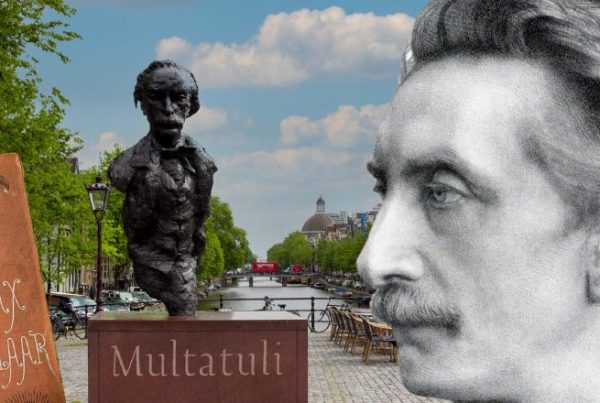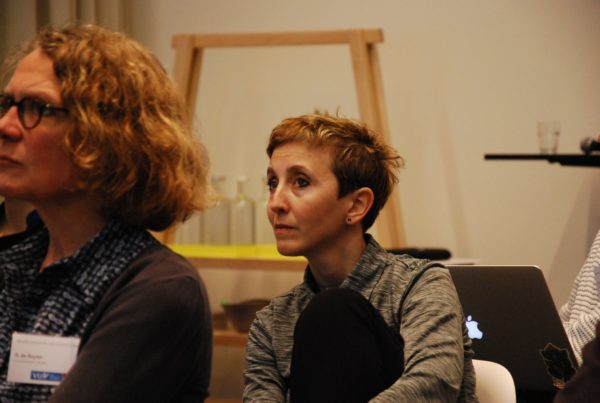Cognitive Science of Religion and Philosophy
Workshop Hans Van Eyghen – Michiel van Elk – Robert McCauley
June 14, 12.30 – 16.30 uur
Vrije Universiteit Amsterdam
Main building, room HG-09A16
The Cognitive Science of Religion (CSR) hosts a number of theories that explain religious belief and religious behavior. The discipline distinguishes itself from other approaches by focusing on the human mind. From its onset in the early 1990’s CSR has grown to be a major player in religious studies. In this workshop, the key theories in the field are introduced and new work is presented. The workshop also addresses a number of philosophical questions raised by CSR-theories.
Program
12.30: 13.00 Introduction: The Cognitive Science of Religion
13.00- 14.00: The Power of Suggestibility: Experimental Research on Extraordinary Experiences (Michiel van Elk)
14.00- 14.30: Break
14.30- 15.30: Debunking Religious Belief (Hans Van Eyghen)
15.30- 16.30: Cognition, Religious Gadgetry, and Mental Disorders (Robert McCauley)
18.00- …: dinner
Speakers
Michiel van Elk: The Power of Suggestibility: Experimental Research on Extraordinary Experiences
Why is it that so many people across different times and cultures report extraordinary experiences that often have high personal and societal significance? Some people vividly hear the voice of God, or can feel the Holy Spirit rush through their body; others report life-changing encounters with spiritual entities, out-of-body experiences, or the continued presence of a guardian angel. According to the Interactive Religious Experience Model (IREM; van Leeuwen & van Elk, 2018), people have a motivated tendency to actively seek situations that trigger these experiences. Extraordinary experiences enable believers to transform general religious beliefs (such as God exists) to personal religious beliefs that directly refer to the agent holding the belief or to her peripersonal time and space (such as God appeared to me last night). On this account, people acquire general religious beliefs mostly from their surrounding culture; however, people use extraordinary experiences to form personal religious beliefs. The IREM is substantiated by recent experimental research, indicating that experiences of the supernatural require a certain proclivity (i.e., ‘absorption’), strong expectations `(i.e., ‘set’) and the right context (i.e., ‘setting’).
Hans Van Eyghen: Debunking Religious Belief?
A number of authors argue that CSR-theories undermine or debunk religious belief. They point out that the causes of religious belief laid bare by CSR-theories cast doubt on the rationality of religious belief. I argue that the arguments only apply tos ome CSR-theories since many CSR-theories are nota bout causes of religious belief. Most theories discuss a number of general patterns in religious cognition and remain silent about how religious belief is caused. I also argue that CSR-theories that do discuss causes do not debunk religious belief.
Robert McCauley: Cognition, Religious Gadgetry, and Mental Disorders
The cognitive by-product approach holds that many features of religiosity are unexceptional outcomes of human mental architecture — grounded in maturationally natural cognitive systems having nothing to do either with religiosity or with one another. Religious representations are appealing, because they engage these systems. That engagement renders those representations attention-grabbing, motivating, communicable, inferentially rich, and, under some circumstances, memorable. This does not exhaust the ways that religions engage the operations of these cognitive systems. Various religious arrangements cue thoughts and behaviors in the general population that mimic features of mental disorders. Religiously induced moral thought-action fusion (TAF) and rituals are two such means for eliciting the mimicry of features of obsessive-compulsive disorder. Religiously induced moral TAF increases the probabilities of people undertaking rituals, which, in turn, increases the probabilities of them going through, what Boyer and Liénard have called, ritualized behaviors. Ritualized behaviors around a restricted range of security motivation themes involve compulsion, rigidity, goal demotion, internal repetition and redundancy. Those behaviors deplete participants’ cognitive resources, and, thereby, create space for religious authorities to regularize rituals’ performances and impose upon them religiously prominent interpretations.
Participation
Participation in the workshop is free but registration is required. Please confirm your attendance at h.m.r.a.van.eyghen@vu.nl.
Please also indicate if you want to join for dinner. Costs for dinner are 50 euro (to be paid in cash).




